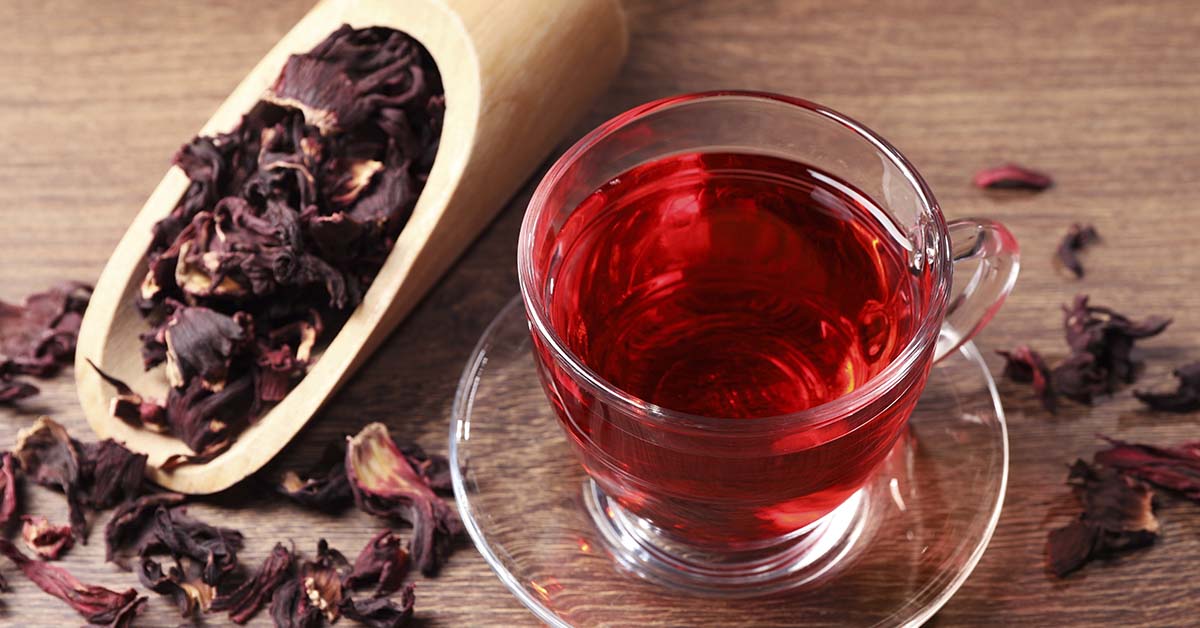When people think of tea, they the first thing they think of more common teas like English breakfast or green tea. However, hibiscus tea is a tasty red-colored tea beverage derived from the hibiscus plant. Beyond its great flavor and beautiful color, it is also known for its potential health benefits. These benefits range from improving heart health to aiding in weight management. Researchers are continuing to explore the intricacies of this tea and what it may be able to do for our health. This is what we know so far.
What is Hibiscus Tea?
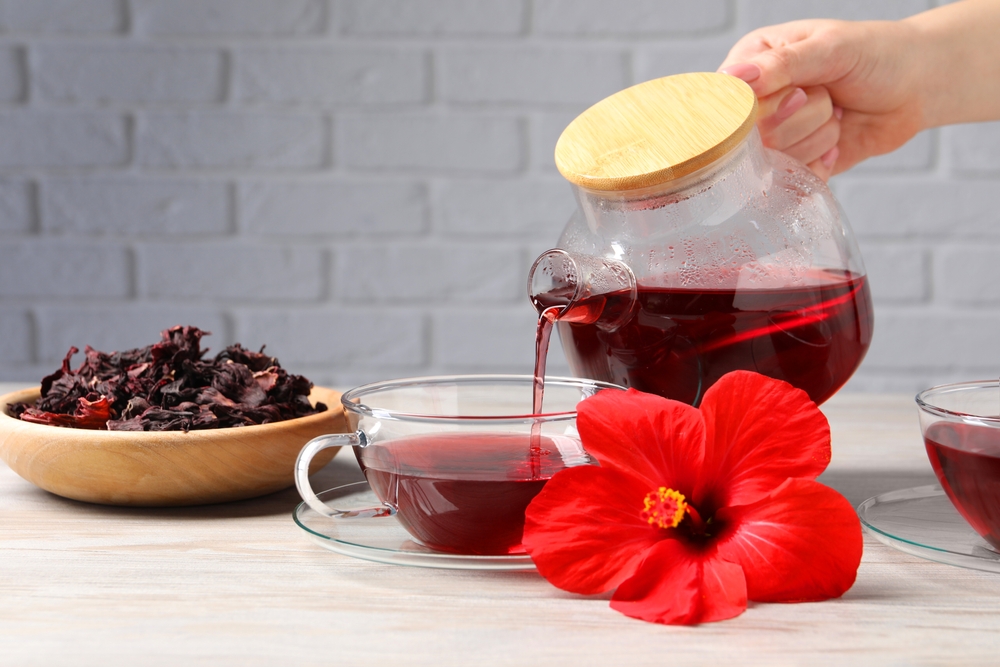
Hibiscus tea is made from the hibiscus plant, which thrives in warmer climates. You can see hibiscus plants blooming on many tropical islands and in warmer-weather countries. The tea is typically made from the calyx of the hibiscus flower, which is known for its rich red color. The flavor profile is reminiscent of cranberries. Hibiscus flowers offer both culinary and medicinal benefits, making it a popular choice in many different countries across the world. There are two common varieties used in teas: Hibiscus sabdariffa and Hibiscus rosasinensis, with the former showing more significant scientific support for the health benefits that it is said to offer.
Benefits of Consuming Hibiscus Tea
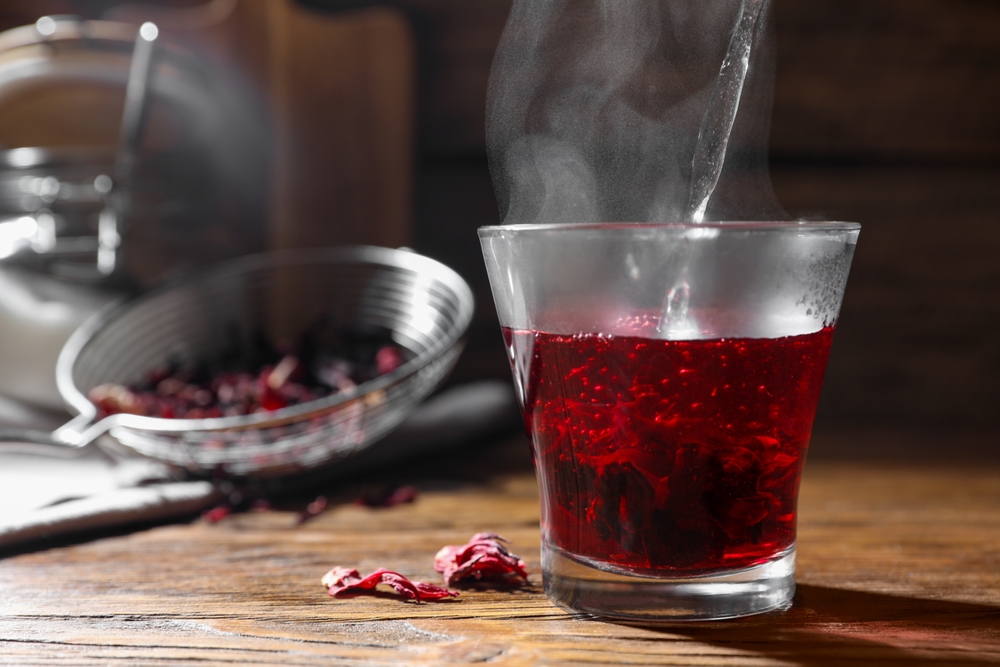
Hibiscus tea, whether drunk warm or cold, offers plenty of benefits for your health. Some of these benefits are better understood than others. Scientists are continuing to study this plant to hopefully better understand everything it can do for human health.
Read More: 4 Potential Benefits of Pu-erh Tea: Cholesterol, Liver Health, Anti-Cancer, And More
1. Lowering Blood Pressure

Studies suggest that hibiscus tea, particularly from the sabdariffa variety, is a powerful ally for blood pressure control. It can significantly reduce both systolic and diastolic blood pressure levels. For those looking to manage hypertension, this could be a beneficial drink to keep around the house.
2. Reducing Bad Cholesterol
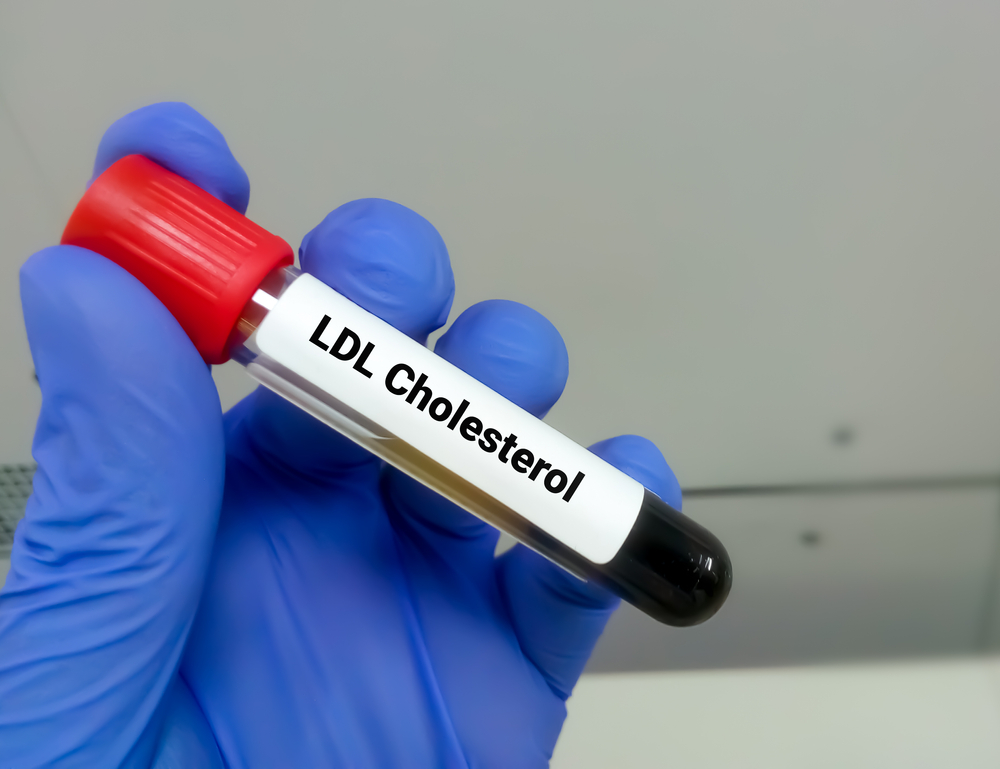
On the other hand, hibiscus tea made from the rosasinensis variety has a different heart-helping benefit: It may help to control elevated levels of LDL cholesterol. This is the low-density lipoprotein cholesterol that is also referred to as ‘bad’ cholesterol. Too much LDL and you could end up with restricted blood flow and cardiac problems. Regular consumption of hibiscus tea may contribute to improving cholesterol levels.
3. Lowering Blood Sugar
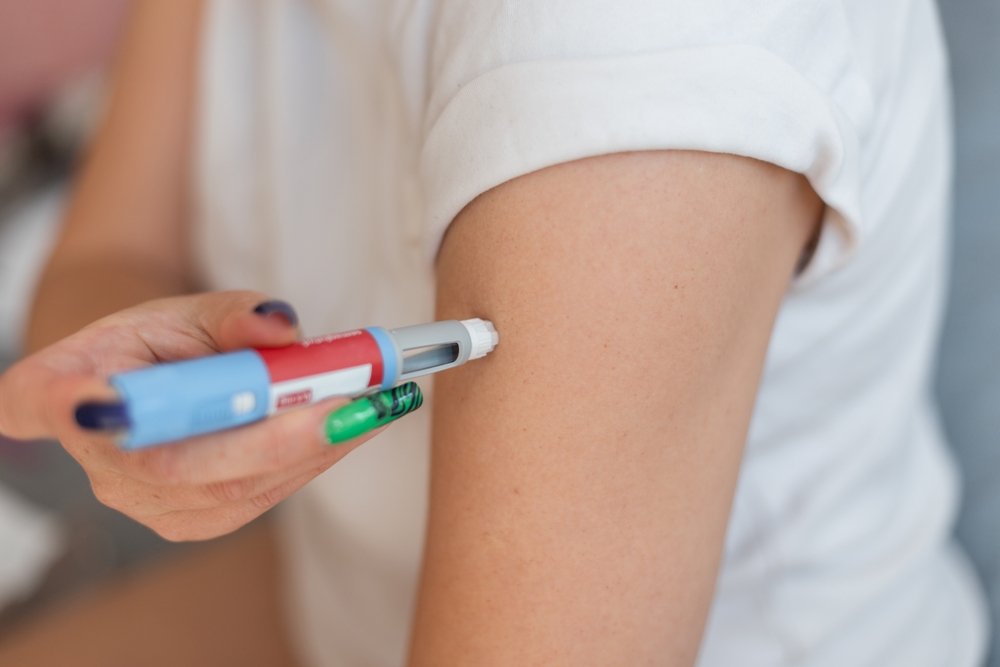
Elevated blood sugar levels can lead to chronic illnesses such as type 2 diabetes. Hibiscus tea has shown promising effects in reducing fasting blood glucose levels. This means that it could be a useful addition for individuals looking to manage their blood sugar levels, particularly for those at risk of diabetes.
4. Weight Management

When combined with other plant extracts, recent studies suggest that hibiscus tea may aid in weight loss. The exact mechanisms of this are not yet fully understood and more studies are needed. That being said, it could be an additional tool for those aiming to improve their metabolic health and manage conditions such as obesity.
5. Hormone Balance
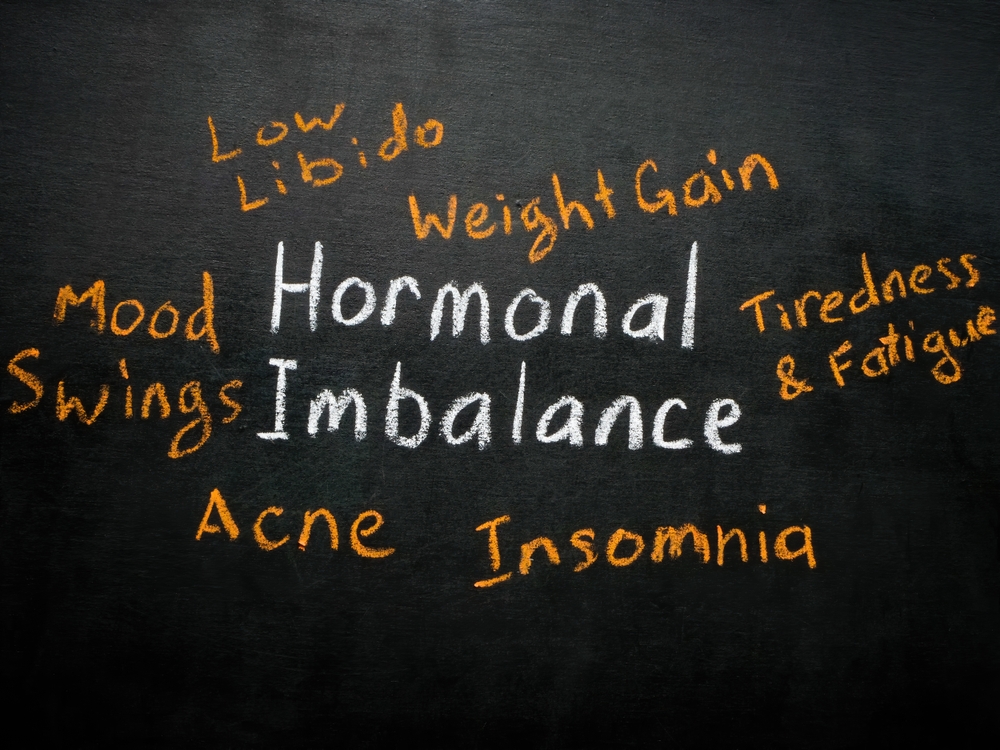
Keeping your hormones within healthy ranges are critical for your health. In traditional Mexican medicine, hibiscus tea has been used to manage PMS (aka premenstrual syndrome) symptoms, as well as menopause symptoms. Hibiscus rosasinensis contains phytoestrogens that may help to balance hormone levels. More research is needed to better understand the mechanisms and the extent of these benefits.
Read More: What Are the Potential Benefits of Bay Leaf and Cinnamon Tea?
Nutrition and Considerations
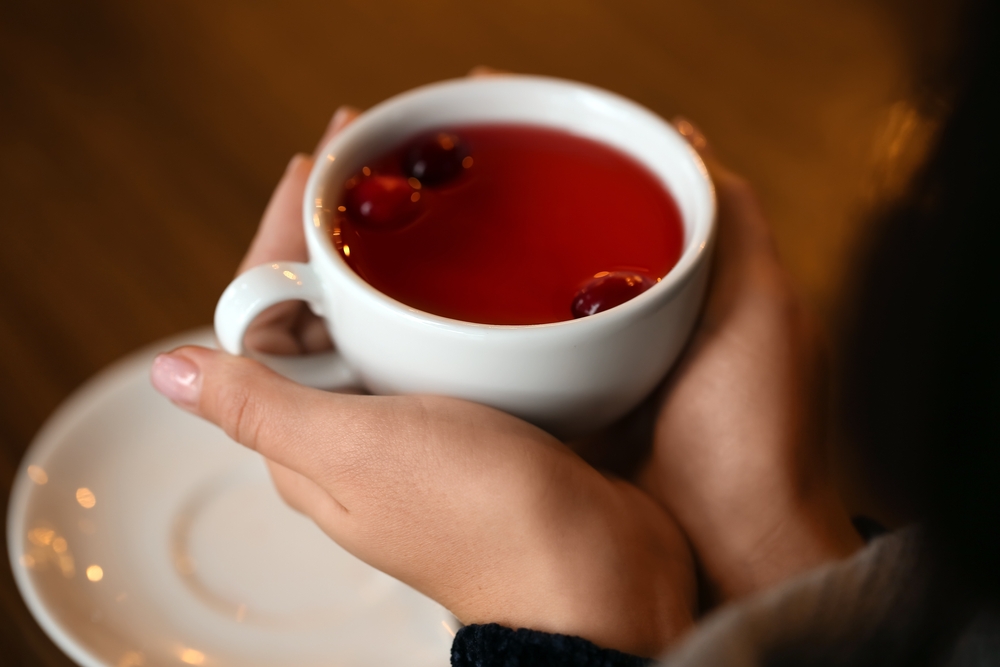
Pure hibiscus tea is naturally calorie and caffeine-free. It contains trace amounts of essential minerals such as magnesium, calcium, phosphorous, and potassium. It is high in polyphenolspolyphenols, which are known antioxidants. This is particularly why hibiscus tea has gained attention in medical research. When purchasing hibiscus tea, do your best to choose high-quality, organic products. Research brands ahead of time and read your labels carefully. Be wary of pre-made hibiscus-based drinks, which can often contain loads of added sugar and other unwanted ingredients.
How Often to Consume Hibiscus Tea

There is some evidence to suggest that 2-3 cups of hibiscus tea per day may be beneficial for those with high blood pressure. There is not sufficient long-term studies on this, nor on its daily consumption to be able to give any definitive recommendations. Generally, it is recommended to consult with your healthcare provider before starting a daily hibiscus tea regimen, particularly if you have pre-existing conditions or are taking any medications.
The Bottom Line
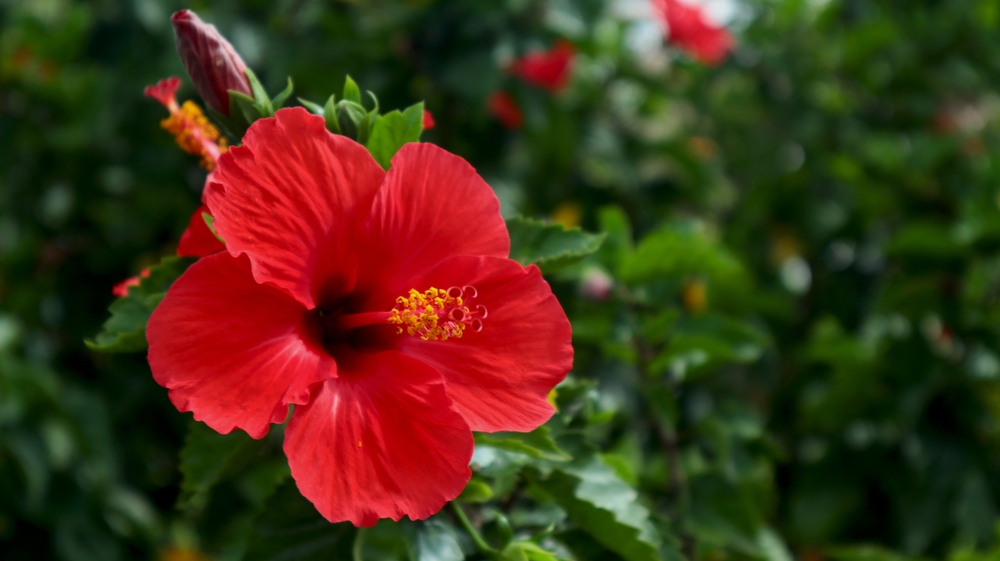
Hibiscus tea is a flavorful and potentially beneficial beverage that may offer various health advantages, from improving heart health to aiding in weight management. However, it is essential to be mindful of potential risks, including interactions with certain medications and high consumption levels. By understanding the benefits and considerations of hibiscus tea, individuals can make informed choices about integrating this herbal tea into their wellness routine.
Disclaimer: This information is not intended to be a substitute for professional medical advice, diagnosis or treatment and is for information only. Always seek the advice of your physician or another qualified health provider with any questions about your medical condition and/or current medication. Do not disregard professional medical advice or delay seeking advice or treatment because of something you have read here.
Read More: What Is Coffee Leaf Tea? 5 Potential Benefits.
